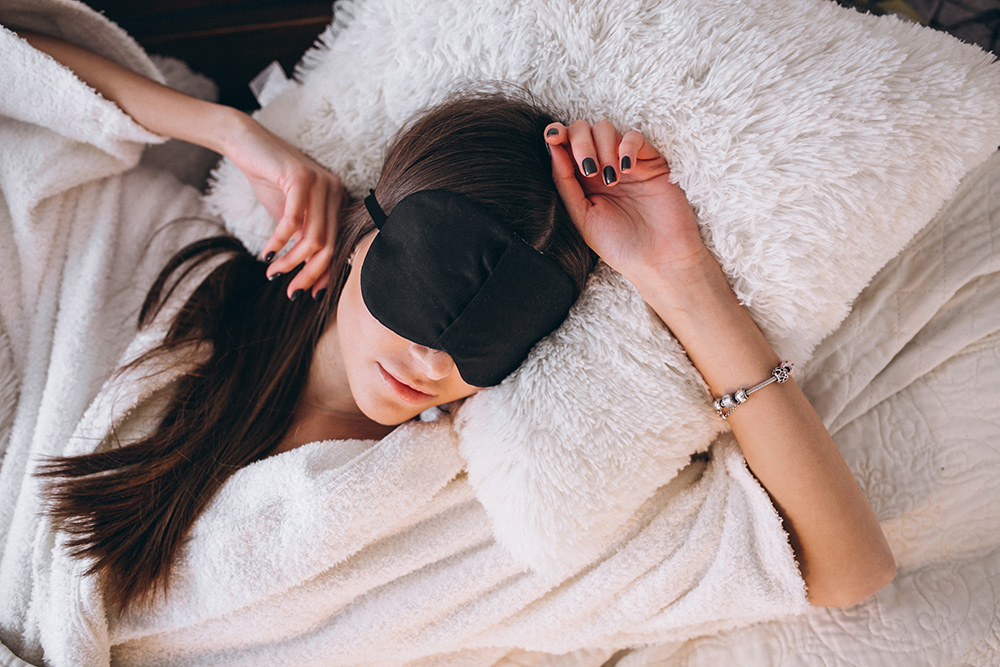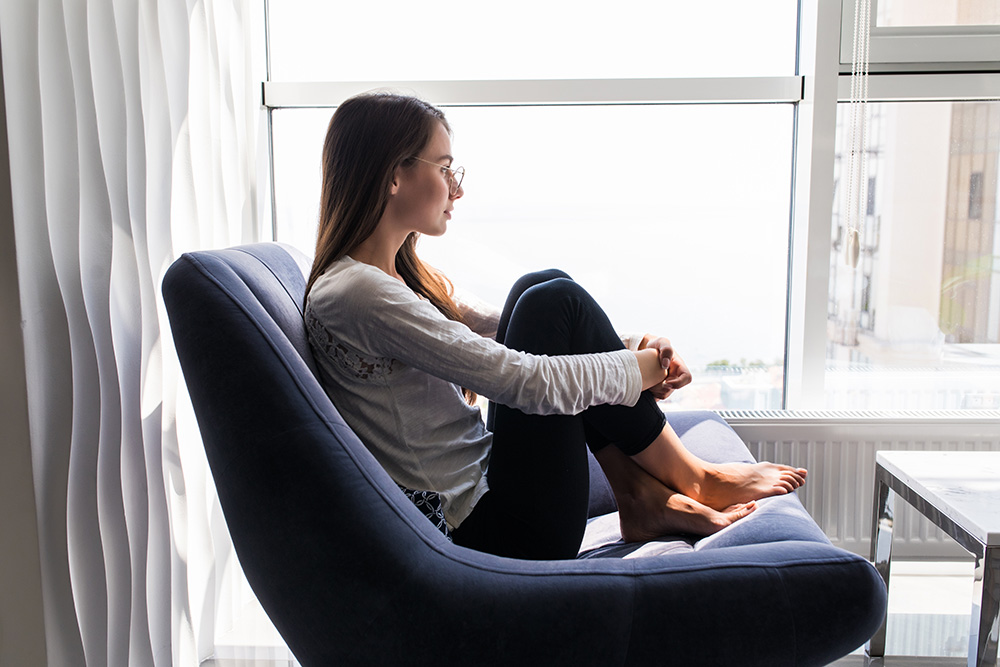
Sleep is a crucial aspect of our daily lives, playing a vital role in our physical, mental, and emotional well-being. However, in today's fast-paced world, many people struggle to get the quality sleep they need to function at their best. Poor sleep quality can lead to a host of health issues, including decreased cognitive function, weakened immune system, and increased risk of chronic diseases such as obesity, diabetes, and cardiovascular disease [1]. Fortunately, by adopting certain habits and making lifestyle changes, you can significantly improve the quality of your sleep. In this article, we'll explore eight key habits that can help you enhance your sleep quality and wake up feeling refreshed and rejuvenated.
1. Establish a Consistent Sleep Schedule
One of the most important habits for improving sleep quality is maintaining a consistent sleep schedule. Aim to go to bed and wake up at the same time every day, even on weekends. This helps regulate your body's internal clock, known as the circadian rhythm, which plays a crucial role in the sleep-wake cycle. When your circadian rhythm is in sync, you'll find it easier to fall asleep and wake up naturally, leading to better quality sleep [2].
To establish a consistent sleep schedule, start by setting a realistic bedtime that allows you to get enough sleep (typically 7-9 hours for adults). Create a relaxing bedtime routine that helps signal to your body that it's time to wind down, such as reading a book, taking a warm bath, or practicing gentle stretches. Avoid stimulating activities like watching television or using electronic devices at least an hour before bed, as the blue light emitted by these devices can disrupt your circadian rhythm [3].
2. Create a Sleep-Conducive Environment
The environment in which you sleep can have a significant impact on the quality of your rest. To create a sleep-conducive environment, start by ensuring your bedroom is dark, quiet, and cool. Use blackout curtains or an eye mask to block out any external light, and consider using earplugs or a white noise machine to minimize disruptive sounds. Keep your bedroom temperature between 60-67°F (15-19°C), as a slightly cool room can help promote better sleep [4].
Invest in a comfortable, supportive mattress and pillows that suit your sleep preferences. Choose bedding made from breathable, natural materials like cotton or bamboo to help regulate your body temperature throughout the night. Keep your bedroom clean and clutter-free, as a tidy environment can help promote a sense of calm and relaxation.
3. Limit Exposure to Electronic Devices
Electronic devices like smartphones, tablets, and computers emit blue light, which can interfere with your body's production of melatonin, the hormone that regulates sleep. Exposure to blue light in the evening can trick your brain into thinking it's still daytime, making it harder to fall asleep and reducing the quality of your rest [5].
To minimize the impact of electronic devices on your sleep, establish a digital curfew at least an hour before bedtime. Use this time to engage in relaxing, screen-free activities like reading, journaling, or practicing meditation. If you must use electronic devices in the evening, consider using blue light-blocking glasses or installing apps that filter out blue light on your devices.
4. Exercise Regularly
Regular exercise has been shown to improve sleep quality and duration, as well as reduce the time it takes to fall asleep [6]. Engaging in moderate-intensity aerobic exercise, such as brisk walking, cycling, or swimming, for at least 30 minutes a day can help promote better sleep. However, it's important to avoid vigorous exercise too close to bedtime, as it can have a stimulating effect and make it harder to fall asleep.
Aim to exercise earlier in the day or at least a few hours before bedtime. If you prefer to exercise in the evening, opt for gentler activities like yoga or stretching, which can help promote relaxation and reduce stress.
5. Manage Stress and Practice Relaxation Techniques
Stress and anxiety can have a significant impact on sleep quality, making it harder to fall asleep and stay asleep throughout the night. To manage stress and promote better sleep, incorporate relaxation techniques into your daily routine. These can include deep breathing exercises, progressive muscle relaxation, mindfulness meditation, or journaling.
Create a calming bedtime ritual that helps you unwind and release the day's tensions. This might involve taking a warm bath, listening to soothing music, or practicing gentle yoga poses. Avoid engaging in stressful or stimulating activities before bed, such as checking work emails or watching intense television shows.
6. Be Mindful of Your Diet and Caffeine Intake
What you eat and drink can have a significant impact on your sleep quality. Aim to eat a balanced, nutrient-rich diet that includes plenty of fruits, vegetables, whole grains, and lean proteins. Avoid heavy, high-fat meals close to bedtime, as they can cause digestive discomfort and make it harder to fall asleep.
Be mindful of your caffeine intake, as consuming caffeine too late in the day can interfere with your ability to fall asleep and reduce the quality of your rest. Aim to limit caffeine consumption to the morning and early afternoon, and avoid caffeine-containing beverages like coffee, tea, and soda at least six hours before bedtime [7].
7. Avoid Alcohol and Nicotine
While alcohol may initially make you feel drowsy, it can disrupt your sleep quality and lead to nighttime awakenings. Alcohol consumption before bed can suppress REM (rapid eye movement) sleep, the stage of sleep associated with vivid dreaming and memory consolidation [8]. This can leave you feeling unrefreshed and groggy in the morning.
Similarly, nicotine is a stimulant that can interfere with your ability to fall asleep and reduce the quality of your rest. If you smoke, aim to quit or at least avoid smoking close to bedtime. If you're struggling to quit, talk to your healthcare provider about smoking cessation programs and resources.
8. Seek Professional Help if Needed
If you consistently struggle with poor sleep quality despite implementing these habits, it's essential to consult with a healthcare professional. Persistent sleep issues may be a sign of an underlying sleep disorder, such as insomnia, sleep apnea, or restless leg syndrome. A healthcare provider can help diagnose any underlying conditions and develop a personalized treatment plan to improve your sleep quality.
Conclusion
Improving your sleep quality is a crucial step towards enhancing your overall health and well-being. By establishing a consistent sleep schedule, creating a sleep-conducive environment, limiting exposure to electronic devices, exercising regularly, managing stress, being mindful of your diet and caffeine intake, avoiding alcohol and nicotine, and seeking professional help if needed, you can significantly enhance the quality of your rest and wake up feeling refreshed and rejuvenated.
Remember, making lasting changes to your sleep habits takes time and consistency. Be patient with yourself and celebrate the small victories along the way. With dedication and perseverance, you can transform your sleep quality and enjoy the numerous benefits of a well-rested mind and body.
References
- Medic, G., Wille, M., & Hemels, M. E. (2017). Short- and long-term health consequences of sleep disruption. Nature and Science of Sleep, 9, 151-161. https://doi.org/10.2147/NSS.S134864
- Czeisler, C. A., & Klerman, E. B. (1999). Circadian and sleep-dependent regulation of hormone release in humans. Recent Progress in Hormone Research, 54, 97-130. https://pubmed.ncbi.nlm.nih.gov/10548874/
- Duffy, J. F., & Wright, K. P., Jr (2005). Entrainment of the human circadian system by light. Journal of Biological Rhythms, 20(4), 326-338. https://doi.org/10.1177/0748730405277983
- Okamoto-Mizuno, K., & Mizuno, K. (2012). Effects of thermal environment on sleep and circadian rhythm. Journal of Physiological Anthropology, 31(1), 14. https://doi.org/10.1186/1880-6805-31-14
- Tosini, G., Ferguson, I., & Tsubota, K. (2016). Effects of blue light on the circadian system and eye physiology. Molecular Vision, 22, 61-72. https://www.ncbi.nlm.nih.gov/pmc/articles/PMC4734149/
- Kredlow, M. A., Capozzoli, M. C., Hearon, B. A., Calkins, A. W., & Otto, M. W. (2015). The effects of physical activity on sleep: a meta-analytic review. Journal of Behavioral Medicine, 38(3), 427-449. https://doi.org/10.1007/s10865-015-9617-6
- Drake, C., Roehrs, T., Shambroom, J., & Roth, T. (2013). Caffeine effects on sleep taken 0, 3, or 6 hours before going to bed. Journal of Clinical Sleep Medicine, 9(11), 1195-1200. https://doi.org/10.5664/jcsm.3170
- Ebrahim, I. O., Shapiro, C. M., Williams, A. J., & Fenwick, P. B. (2013). Alcohol and sleep I: effects on normal sleep. Alcoholism, Clinical and Experimental Research, 37(4), 539-549. https://doi.org/10.1111/acer.12006
Latest Posts
-
1
-
2
-
3
-
4
-
5





